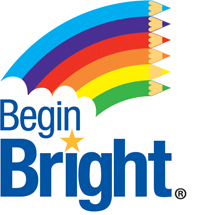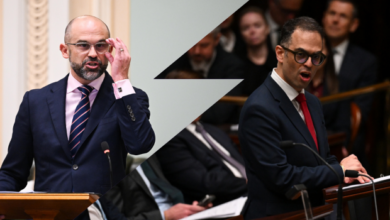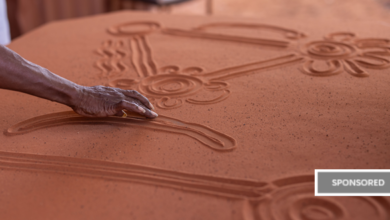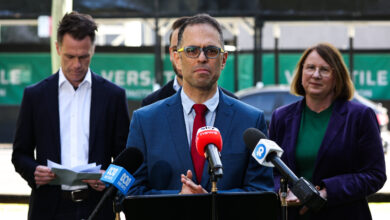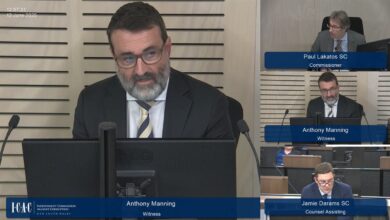School readiness: a necessity not a luxury
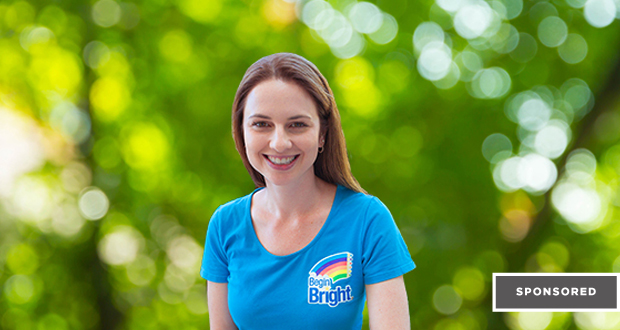
Imagine the impact on prep teachers if all children starting school could confidently approach tasks, demonstrate an early understanding of literacy and numeracy concepts, focus for extended periods of time, hold a pencil correctly, socialise well with others and follow instructions. Teachers could then spend more time on meeting the demands of National Curriculum and reaching higher achievement standards with their students.
"...knowing the significant impact that our School Readiness Program is having on early childhood learners has made my Begin Bright journey the best career decision I could have made."
As a former Prep classroom teacher I cared deeply about the development of the children in my classes and worked endlessly during the school day and beyond to meet the unique needs of each student in the best possible way. However, when you are seeing such a dramatic number of children requiring learning support, speech and occupational therapy intervention in the early years of education, one must consider why this is happening. The roots of the learning needs must be addressed and whether or not the developmental delays and learning difficulties could be prevented or simply targeted for further support in the early years. Seeking out a means of working with children to develop and hone in on appropriate developmental milestones prior to school entry, led me to discover the Begin Bright School Readiness Program. As a result, I opened my own Begin Bright centre on the Gold Coast, Queensland, delivering School Readiness and Primary Tutoring Programs.
Begin Bright centres focus on preparing the foundations of growth for our youngest members of society, so they can be well rounded, engaged students who are confident and love learning so they can fulfil their potential. Our School Readiness program is unique and contemporary in its approach. The success of Begin Bright’s School Readiness program is due to a combination of factors that are inclusive of; class duration, group size, focus on importance of social engagement, synthetic method to teaching phonics and utilising a program that encompasses the Australian Curriculum and Early Years Framework.
Early childhood programs are not a new concept, however, actively teaching children a set of skills which best prepares them for school in weekly one hour sessions is proving to be a methodology that achieves outstanding results. Schools are assessing and screening students from even before entering the classroom (enrolment screening) and their expectations are high. With the application of a set National Curriculum came the belief that all children entering school will have specific skills prior to their commencement. If children have not yet passed through these expected developmental stages they can find the transition to school and school in general to be difficult and not as enjoyable as it should be and can be for each and every child. Seeking to build confidence in children and allowing them to have positive growth mindset is vital to school preparation and is a major contributing factor resulting in students flourishing when they enter school. This is why School Readiness needs to be considered a necessity for all children, rather than a luxury for a select few.
Begin Bright School Readiness classes ensure constant participation and movement throughout the classroom. Children may start on the floor where they will be doing their letter recognition and phonemic awareness of the alphabet, then to their desks where they will be learning how to sit correctly, hold a pencil properly and form letters and numbers using correct stroke order. The pre-prep group will be learning all of the letters of the alphabet as single sounds, what they look like and how to visually discriminate that letter from others. They will also start sounding out CVC words (consonant, vowel, consonant) and small sight words which is important for their visual processing skills. Numbers 1-20 will also be covered. Not only the visual recognition of the number but also understanding the relationship of numbers using counters and where the numbers are placed on the number line. Fine motor and gross motor skill development is embedded through the program and learning games are also used to support and consolidate what has been taught and learnt in the lesson.
From 3 years of age, children demonstrate an emerging awareness of words, letters and numbers. Begin Bright uses a synthetic approach to teaching phonics and finds that children build upon their alphabet awareness to understand that sounds are represented by these letters and that letter sounds can be blended together to form words. An understanding of phonics is something that needs to be taught and it will not occur naturally. Research suggests that the level of phonic awareness demonstrated by a preschool aged student will strongly predict their future success in learning to read. This is where we begin to see the importance of making a place for its instruction in early childhood settings and furthermore that doing so will significantly accelerate children’s subsequent reading and writing achievements.
Mathematical processes that are developed and utilised in our School Readiness Program are the foundation from which students build their skill and ability to work mathematically in school. Regardless of the grade of a student - reference will always will be made back to those processes of - matching, comparing, ordering and sequencing, identifying and describing attributes and communicating and patterning that have been learnt and consolidated in the earliest years of mathematical development. Many children may have started chanting number names at home and show enjoyment in counting songs when they come to Begin Bright. We work to consolidate this knowledge and give it value in its application in order to create that strong mathematical foundation knowledge that will best set each child up for future mathematical learning. Discussion with the students and prompting questions enables children to reflect on their mathematical ideas and enables us to monitor their learning to ensure that we are scaffolding the learning experience to exactly where their skill set lays, and where that proximal zone of development and learning can be targeted.
In our experience, we know that children learn best through manipulating objects, which support their developmental movement from concrete to abstract levels of reasoning. Lessons are supported by concrete materials that enable learning to be integrated into highly engaging experiences that form a part of the instructional routine. In classes routine leads to children knowing what to expect when they come into a Begin Bright session. Young children thrive on routine as it allows them to navigate the challenge of learning new ideas and concepts from safe and comforting boundaries within our small group setting.
Class sizes (maximum of 8) enable teachers to differentiate their teaching so that learning experiences are responsive to students individual learning needs. Children are very responsive to working in small groups and thrive on the attention they receive from their teacher. It also enables the explicit instruction of specific social skills. For example, turn-taking, raising your hand, following instructions and using good manners. Having small groups allows Begin Bright centres to run their specialised services in the most efficient and effective learning environment possible, where pedagogies are blended and teaching differentiated to achieve educational excellence in those years prior to a child starting school.
The practical application of learning is so important to Begin Bright and is clearly demonstrated in the School Readiness Program. In entering the teaching profession, we, as teachers, are committing to the tactic of life-long learning. Blend this commitment with becoming an enterprising individual and you realise the value of joining the Begin Bright family. Using your teaching knowledge and experience to pursue educational excellence in your very own Begin Bright centre is a very fulfilling and exciting journey. Families that attend Begin Bright centres place a strong value on education and understand the significance that early years’ education has on a child’s life-long learning journey. Working in such a positive environment and knowing the significant impact that our School Readiness Program is having on early childhood learners has made my Begin Bright journey the best career decision I could have made.
Begin Bright centres are now open in more than 30 locations around Australia, and we are running information sessions for franchising opportunities. For more information in owning your own centre visit our website, or register for an information evening at https://www.beginbright.com.au/information-nights
Do you have an idea for a story?Email [email protected]

